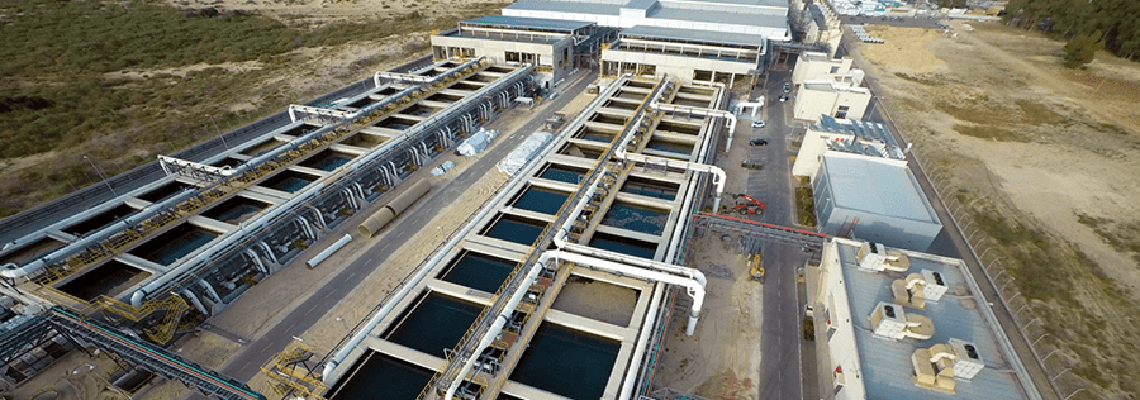
The recently awarded Rabigh 3 desalination project in the Kingdom of Saudi Arabia to ACWA Power was branded as one of the world’s largest desalination plants.
To put it into perspective, with a capacity of 600,000 m3/day, that’s 600 million litres of water that will eventually be produced per day.
There is no doubting at that size, the Saudi mega-size project will be one of the largest out there and the second largest awarded RO desalination plant.
Yet most desalination professionals will know it’s not the largest and it raises the question of well, with over 20,000 desalination plants contracted around the world, which are the largest?
We set out to put together this top ten list.
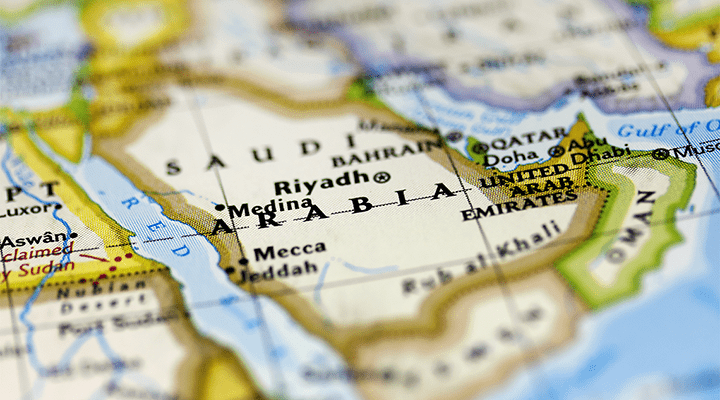
Commonly regarded as the desalination heavyweight of the world, the massive Ras Al-Khair is a hybrid project that uses both thermal multistage flash (MSF) and reverse osmosis (RO) technologies.
Located 75km north-west of Jubail and serving Riyadh, the site also has a substantial power generation component, with a capacity of 2,400MW.
The main contractor for plant construction was Doosan and its consortium partner Saudi Archirodon, with Poyry acting as the consultant for the project.
Ras Al-Khair started operations in 2014 but in 2017 was put up for sale by the Saline Water Conversion Corporation (SWCC) to kickstart privatisation plans and the sale of its assets.
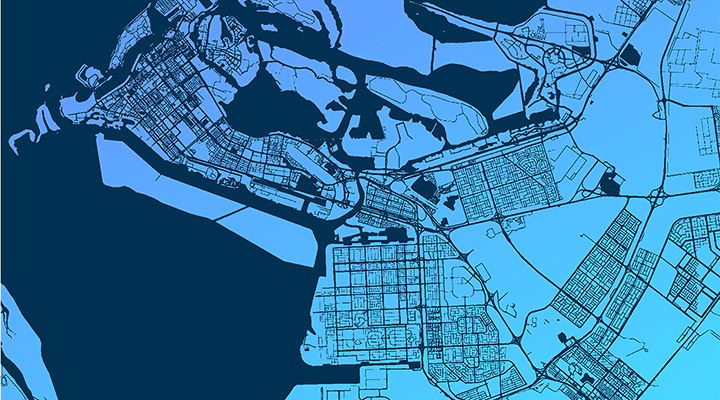
Despite the project being in its infancy, when complete Taweelah will catapult the UAE into the top three list.
To date, seven consortia are bidding on the mega project, including: ACWA Power; Suez International Power SA Dubai Branch (Engie), with Marubeni Corp; Sumitomo Corp, with Veolia Middle East; Valoriza Agua, with Utico FZC and IDB Infrastructure Fund II; Cobra Instalaciones y Servicios, with Orascom Construction; Acciona Agua, with Pal Group; and Suez International, with Sojitz Corporation and NV Besix SA.
ACWA Power with EPC consortium comprising Sepco3 and Abengoa has so far placed the lowest bid using the higher electricity tariff at AED8.26 ($2.25) at $0.49 per cubic metre.
More than 40 companies were reported to have initially shown interest in the Taweelah tender.
Once complete, the Taweela power and water complete is expected to raise the emirate’s proportion of desalinated produced water by RO from 13 percent today to 30 percent by 2022.
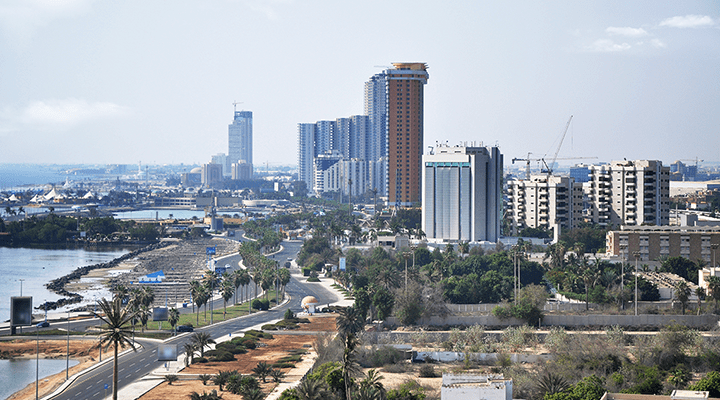
A second in the list for Saudi Arabia, the Shuaiba 3 development is located 90 kilometres south of the historic city of Jeddah.
A consortium involving Siemens of Germany for the power plant and Doosan for the thermal desalination plant were selected by ACWA Power to provide project engineering, procurement and construction of the plant.
One expansion to the plant has been completed and one expansion is in the final construction stage with a total additional 400,000 m3/day of RO capacity added, according to ACWA Power.
When complete in the first half of 2019, Shuaiba will eventually overtake Ras Al Khair as the largest operating desalination plant with total capacity of 1,282,000 m3/day.
The development is part of wider plans from the Water and Electricity Company (WEC) to significantly increase desalination capacity in the country.
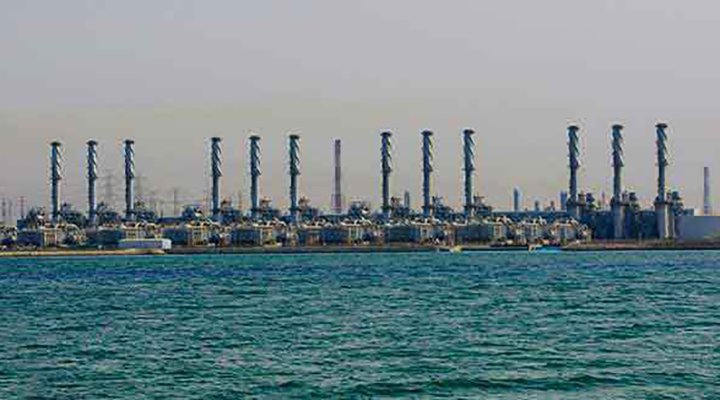
One of the world’s most notable integrated water and power facilities (IWPP), the Jubail Plant is a joint venture between Marafiq, Saudi Electricity Company (SEC), the Water and Electricity Holding Company, and the SGA Marafiq Consortium comprising ENGIE, Gulf Investment Corporation, and ACWA Power Projects.
Commercial operation started at the end of 2010 with a 20-year period slated term for operation. A dual-purpose facility, JWAP includes combined-cycle based power and multi-effect distillation (MED) water generation.
The plant is split into four operational blocks. Three of the four blocks are power and desalination blocks, each of which comprises three gas turbines operating in a combined cycle with a single back pressure steam turbine feeding each nine desalination MED units. The fourth block is a ‘power only’ block with three gas turbines a one reheat condensing steam turbine.
The plant is owned by Jubail Water and Power Company (JWAP). The off-taker is Marafiq Water and Supply Company (Tawreed), a wholly-owned subsidiary of Marafiq, which purchases all of the plant output through a 20-year Power and Water Purchase Agreement (PWPA) with JWAP.
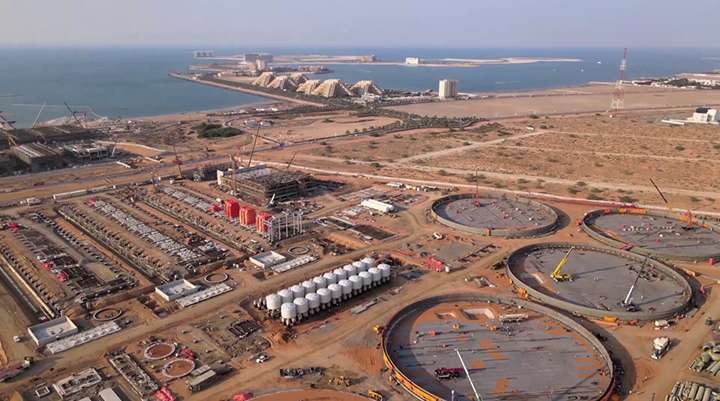
Based in the Emirate of Umm Al Quwain and along the border of Emirate of Ras Al Khaimah, the independent water project (IWP) is one of the largest pure play reverse osmosis plants in the listing.
Expected to be commercially operational in the third quarter of 2022, UAQ is being delivered as a build, own, operate and transfer (BOOT) with a water purchase agreement (WPA) term of 35 years, with the Federal Electricity and Water Authority (FEWA) as the off-taker.
The US$797 million project is being constructed by Chinese partner, Gezhouba Group International Engineering, with SIDEM-Veolia delivering the US$255 million engineering and procurement contract. ACWA Power will have a 40 per cent share, with Techton Engineering and Construction 35 per cent.
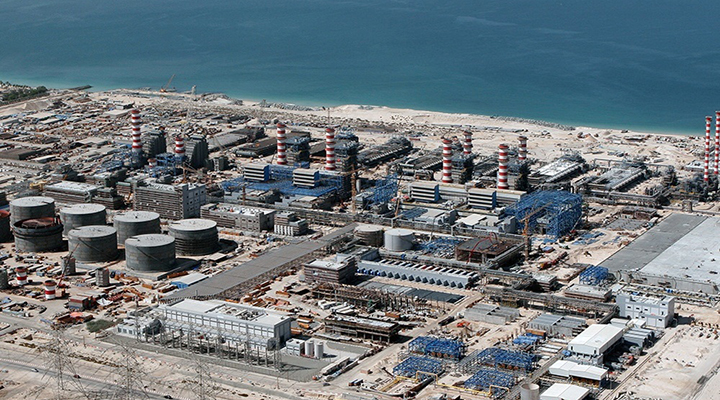
The Dubai Electricity and Water Authority (DEWA) M-Station project is one of the largest power and desalination plants in UAE, producing 636,600 m3/day of potable water and with a total power capacity of 2,885MW.
The project has been implemented in phases since mid-2010. Completed in 2012, the desalination plant was built in eight units by Italian company, Fisia Italimpianti. Multi-Stage Flash (MSF) distillation technology is used, each with a capacity of 80,000 m3/day.
The combined total cost of the construction and expansion of M-Station, equipped with the latest smart devices and sophisticated heavy-duty technological systems, is AED11.5 billion (US$3.1bn).
Furthermore, two dual-fuel-fired auxiliary boilers of 390 tons per hour, and 16 fuel-oil storage tanks, each with a capacity of 20,000 cubic meters, with total fuel-oil storage of 320,000 cubic metres.
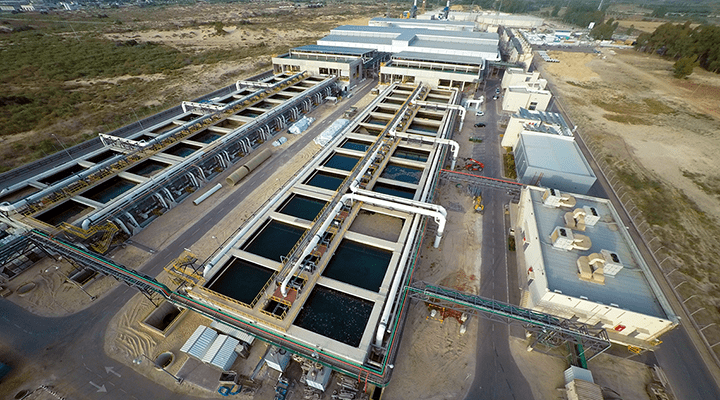
If Ras Al Khair is considered the heavyweight hybrid of the world then Sorek should be considered the heavyweight membrane plant of the world in operation with an enormous 624,000 m3/day capacity.
Located 15km south of Tel Aviv in Israel and developed by IDE Technologies, the project was and continues to be unique in the use of 16 inch seawater reverse osmosis membranes but in a vertical formation.
A further development – Sorek 2 – has since been announced with a capacity of 548,000 m3/day. A total of seven local and international companies were recently shortlisted to develop the project.
Once complete, Sorek 2 will be the sixth desalination plant to operate in Israel alongside Hadera, Ashkelon, the first Sorek, Palmachim and Ashdod.
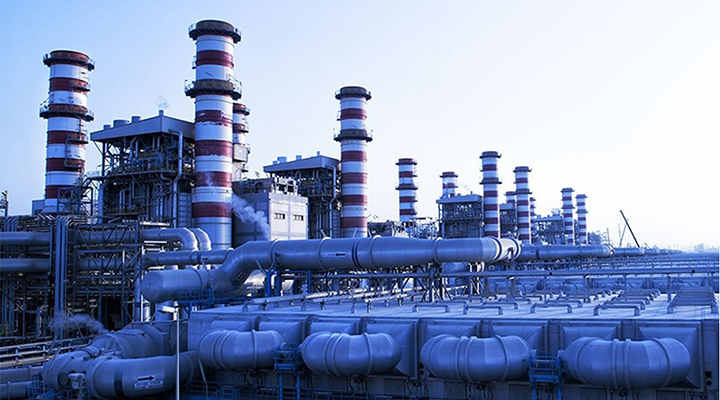
With an investment value of US$650 million, the Jubail 3A Independent Water Plant (IWP) will generate 600,000 m3/day of potable water.
The greenfield seawater reverse osmosis desalination project is set for commercial operation in the fourth quarter of 2022.
The 25-year water purchase agreement was signed with the Saudi Water Partnership Company (SWPC) by a consortium led by ACWA Power 40.2 per cent, including Gulf Investment Corporation (GIC) and Al Bawani Water & Power Company (AWP).
Under the terms of the partnership, the consortium led by ACWA Power will design, construct, commission, operate and maintain the desalination plant as well as associated potable water storage and electrical special facilities.
The Engineering Procurement Construction contract has been awarded to a consortium consisting of Power China, SEPCO-III and Abengoa.
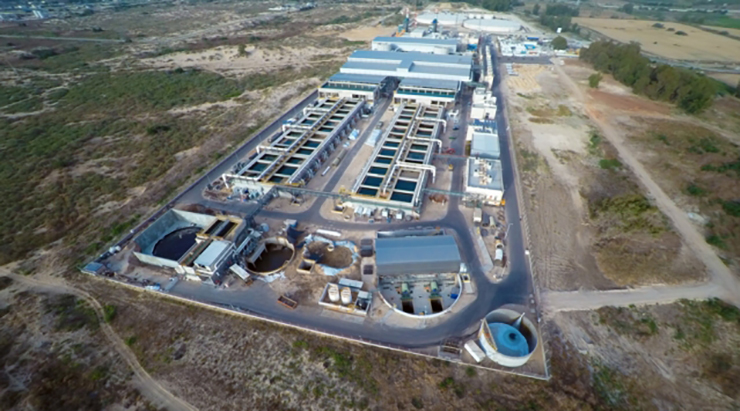
In May 2020, IDE Technologies and Bank Leumi were selected as winners of the public-private-partnership (PPP), 25-year tender for the construction of a second, new desalination plant in Sorek.
IDE's proposal was at an “unprecedented low price” of about NIS1.45 m3 (~ USD 0.41/m3). This reduction in price is predicted to save the water economy about NIS3.3 billion (US$1.02bn) over the period of the facility's operations.
Similar to Sorek 1, the second plant will also use RO membranes to produce 580,000 m3/day.
The project will be funded by a consortium of entities, including Bank Leumi and the German KFW Bank, as well as the European Investment Bank (EIB), which will fund a €150 million loan for the project.
IDE is owned by Alpha Water Partners, controlled by Avshalom Felber and Amir Lang together with Clal Insurance, Ayalon Insurance, Meitav Dash, and other institutional investors.
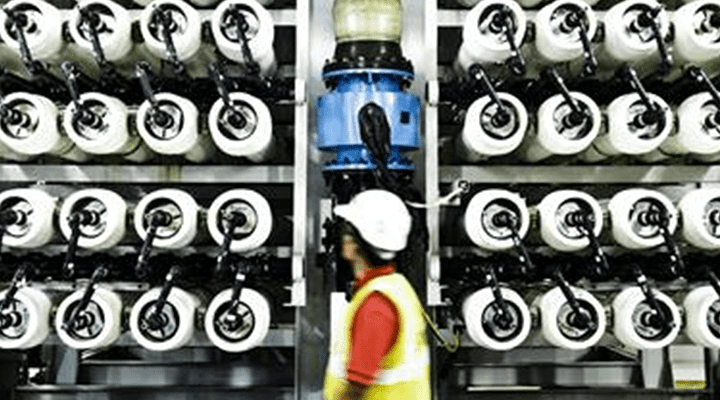
A second hybrid to join the list but this time in the UAE, Fujairah 2 stacks up at 591,000 m3/day. This includes multiple components: a 450,000 m3/day thermal plant, a 136,500 m3/day reverse osmosis facility and a 2000 MW power plant.
The contract was awarded to a consortium made up of Alstom for the power and Sidem (Veolia) for the water, under the name of the Fujairah II Independent Water & Power Production project. Abu Dhabi Water & Electricity (ADWEA) is the off-taker.
Sidem says the hybrid MED-RO solution helps to match seasonal water and power demands. Furthermore, to protect the plant from algae blooms which can be problematic in the area, a dissolved air flotation (DAF) system is used as a pre-treatment.
More information on the Fujairah 2 project can be found in the video below: